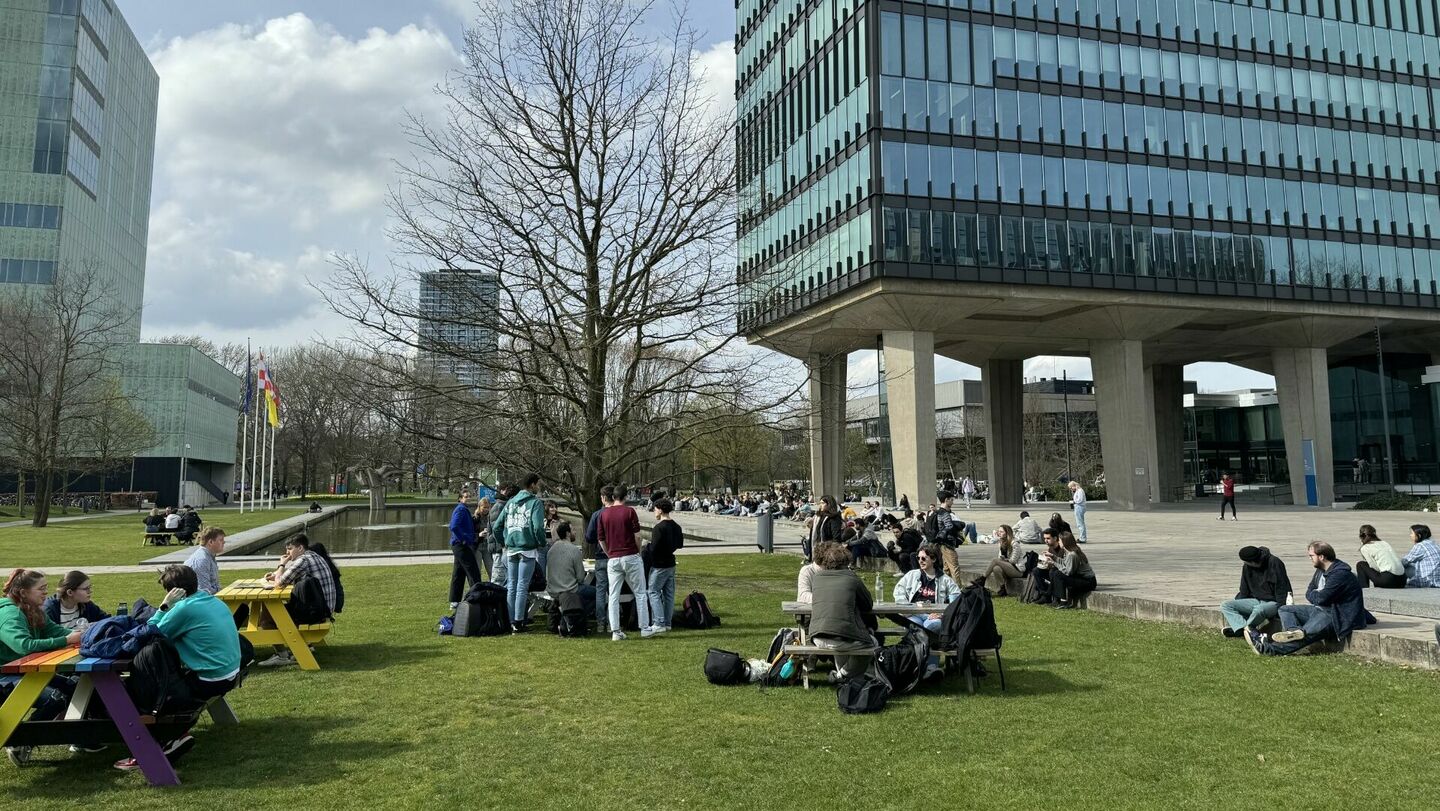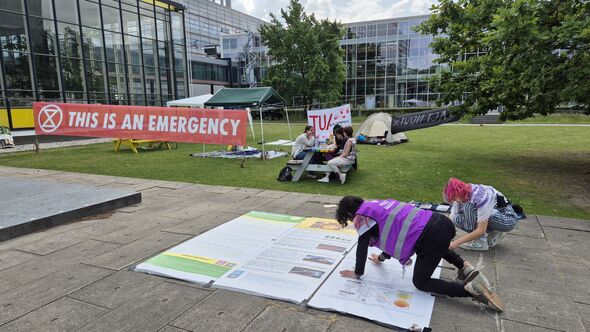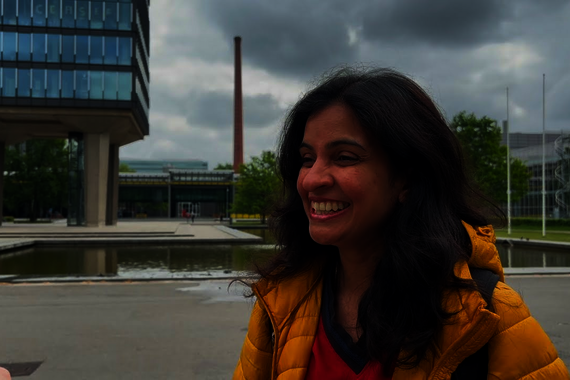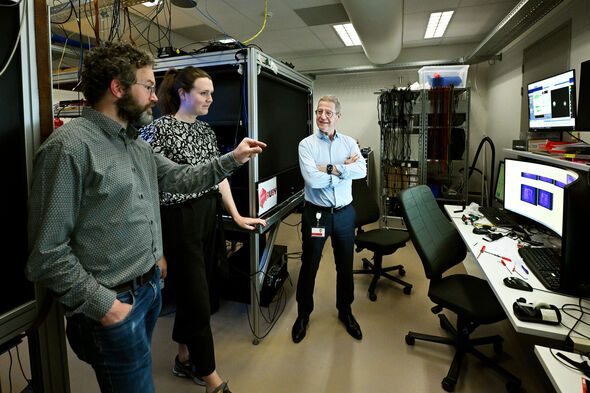
A look back at the academic year: what made the news?
From cyber attack and protests, to Egbert's move and arrival of the new chairman of the board
The end of the academic year is in sight. The last exams have been taken, work has been completed. Those who continue working or studying over the summer usually do so at a slower pace. Reason for Cursor to look back: what was in the news?
It is undoubtedly the event with the greatest impact of the past academic year. The cyberattack that struck TU/e in January landed like a bombshell. The network was taken offline for a week to prevent further damage. A period of uncertainty that puts life on campus on hold. The community holds its breath.
How should students prepare for their exams now? Some remain calm, because they are still logged in to the digital learning environment Canvas and can therefore access everything. For others, the stress level rises to great heights. The pressure is extra great for students who are completing their final project. In the end, the exam week is postponed for a week.
Ransomware attack
Not everyone is happy with that. The week is made up by canceling the catch-up week in the next quartile. Teachers and other staff experience a lot of extra work. And there are also other problems, for example due to planned holidays. For the university board, student interests are paramount and this is the best scenario.
The attack eventually ends 'well'. A technical report published in May shows that the hackers almost certainly did not steal any data when they were preparing a ransomware attack. The network was taken off the air just in time. The report does expose three vulnerabilities, which are now completely sealed.
The campus is not only shaken by a cyber attack from outside. Throughout the academic year, just like the year before, small groups of pro-Palestinian demonstrators regularly draw attention to the fate of the people in Gaza and the university's ties with Israel. The demonstration during the opening of the academic year is still peaceful.
Ties with Israel
But a protest against a lecture by a professor from an Israeli university does not end so well: the speaker is escorted to safety by security personnel. While more and more universities are under pressure to sever ties with Israel, TU/e's position remains unchanged. According to the board, the university is not a political organization. Much to the frustration of the protesters. At the beginning of June, three decide to daub Atlas with red paint.
At other universities, however, there is now movement. Ten universities have set up a committee to assess international partnerships. Five universities have recently changed their position. No university wants to completely sever ties with Israeli partners.
Then TU/e makes a striking turn. On 16 June, the university decided to break off institutional cooperation with the Israeli university Technion due to a growing unease within its own organization. She also promises a committee before July 15 that will assess sensitive collaborations. Some breathe a sigh of relief, but for the protesters it is not enough.
Pond stories
You would almost forget that the campus is also a place where people find each other. The pond often plays a central role in this. When the first rays of sunshine bring warmer days in the spring, not only students and staff appear, but Egbert also reappears. Most know who that is, according to Cursor's Question.
The most famous carp in Eindhoven moved from the Atlas pond to the Blauwe Loper at the beginning of May. He can count on a lot of attention. His fame is even the reason for our columnists Annemarie van Malsen and Pieter Pauw to write about him. Egbert even made it into regional news and the national youth news.
Had he still been chairman, he would probably have missed the view from his office in Atlas on the pond with Egbert. In April, President of the Executive Board Robert-Jan Smits will bid farewell to TU/e. In an interview with Cursor, he looks back on the past six years. In his own words, he has learned a lot from his time at the university, such as "letting go of control a bit".
New chairman
During his last appearance, Smits argues for transparency and connection. That seems right up the alley of his successor Koen Janssen. In his first interview with Cursor, he calls himself a unifying leader. "I'm really open to feedback and interactive thinking, because ultimately we have to work together to make TU/e grow further," says the former director of DSM and TNO.
In the months that followed, Janssen covered a lot of distances on campus. He is guided by deans, professors, researchers and students. His goal: to bring focus to lead the university to the next phase. This is done, among other things, with the new strategic plan: "We are working towards 'One TU/e'," says Janssen.
Outside the campus, the new chair is in talks with partners in the Brainport. TU/e must pull out all the stops to provide the region with sufficient semiconductor talent. The university wants to increase the number of master's students at four faculties by about 70 percent. One of those faculties is Mechanical Engineering.
The millions in government money that are made available for this are in stark contrast to the government cuts in higher education. Unlike other universities, this is one of the reasons why TU/e will not be made redundant. The Eindhoven university is therefore the latest to climb on the soapbox against the government's measures.
However, students, researchers and professors are startled by the arrival of Trump. In a series of interviews, they share their concerns. However, investing students cannot be put off by the American president.
Student housing shortage
Students are also concerned about the shortage in the housing market. Although student housing is being added, it is not going fast enough. The room shortage will remain high in the coming years. There is little chance that Cursor's new editor-in-chief can change that. However, she has expressed the ambition to be at the forefront of the news with the editors.
Whether that ambition will succeed remains to be seen—but you’ll only find out if you keep following Cursor after the summer. Every day, the editors publish fresh stories, and on Fridays they send out the newsletter. You can register for this at the bottom of the homepage.




Discussion